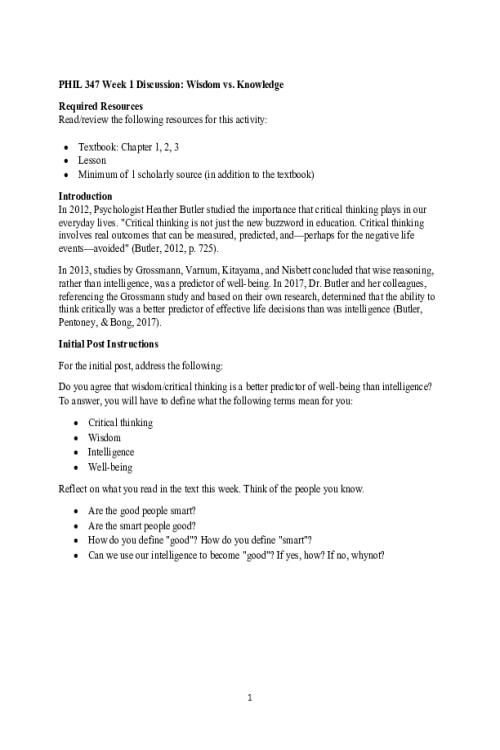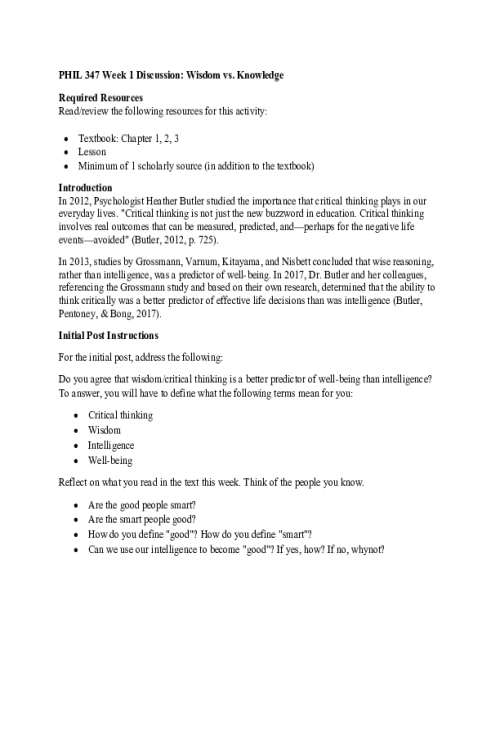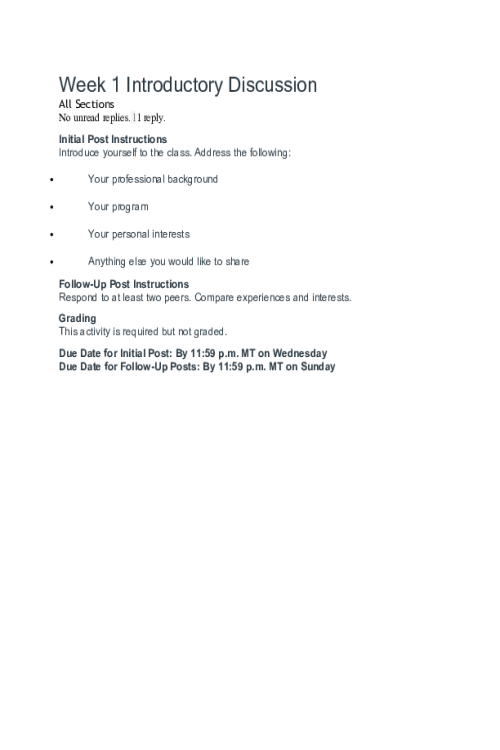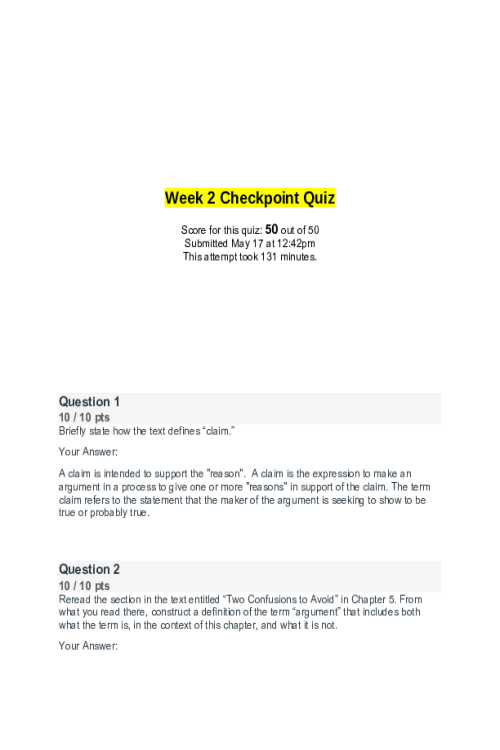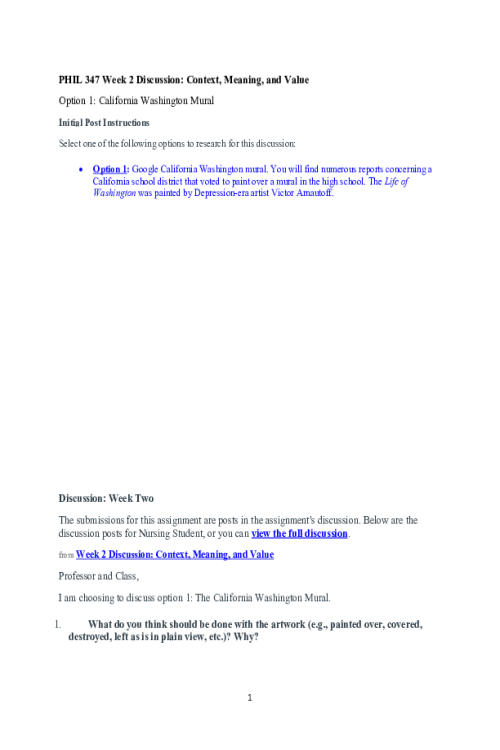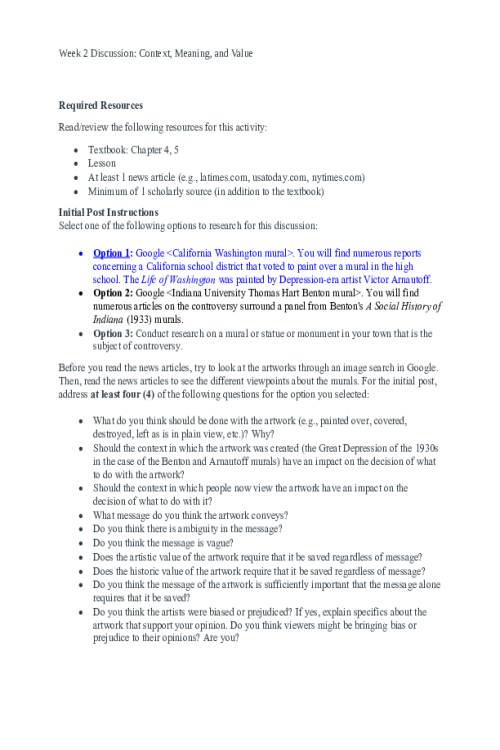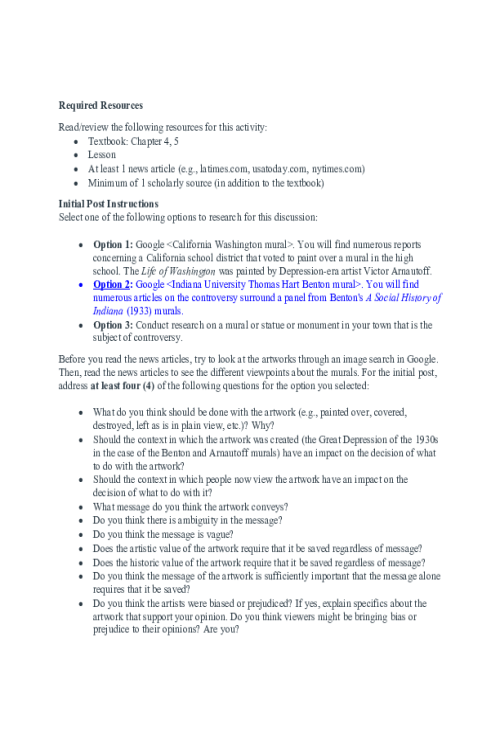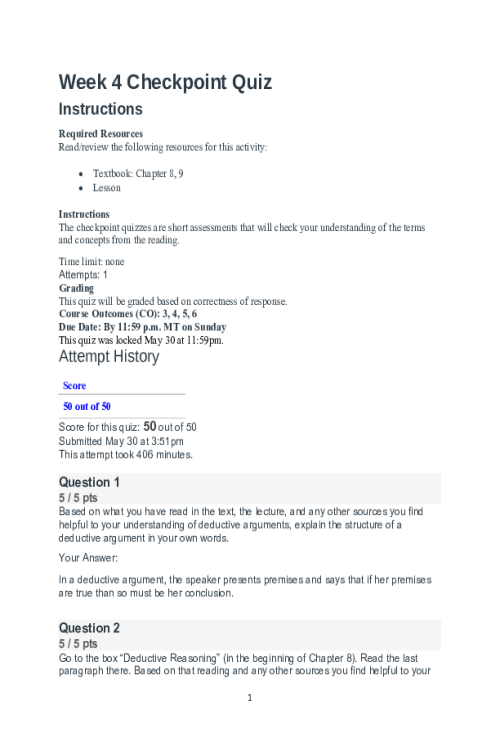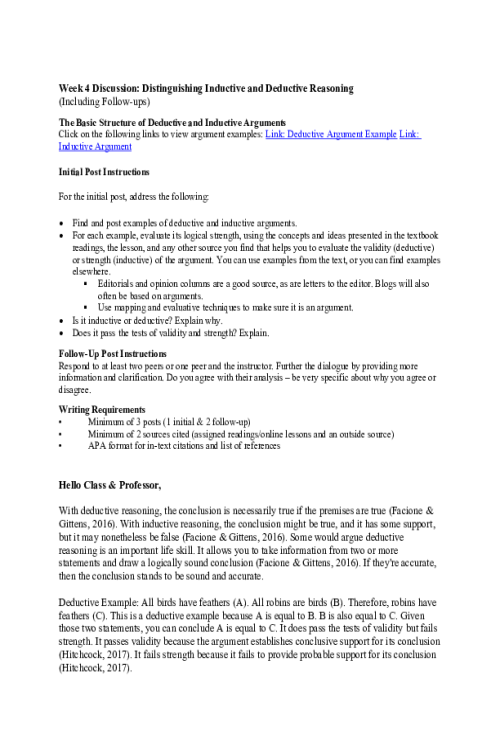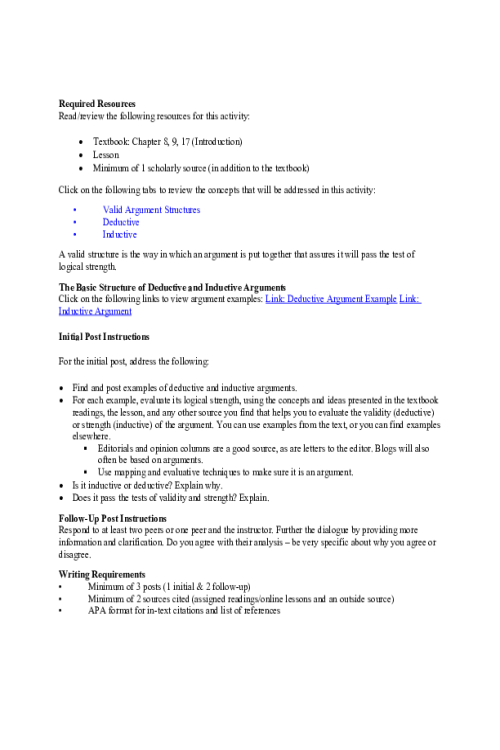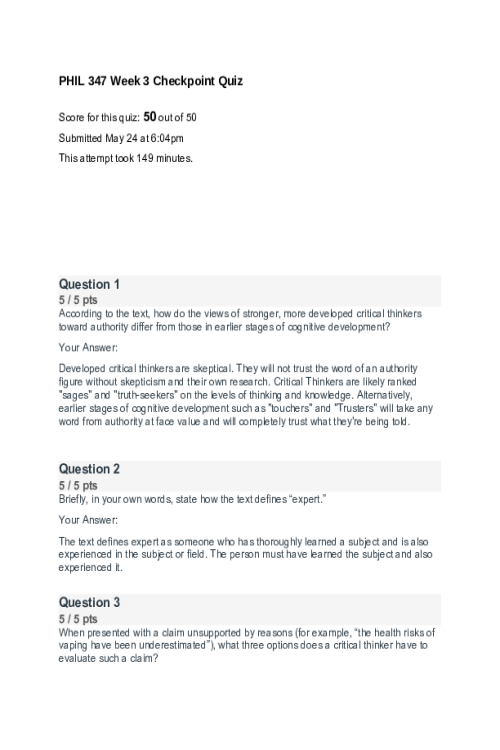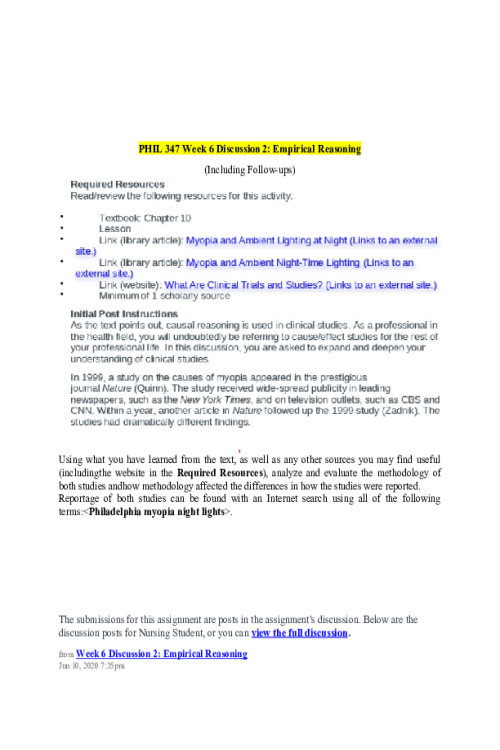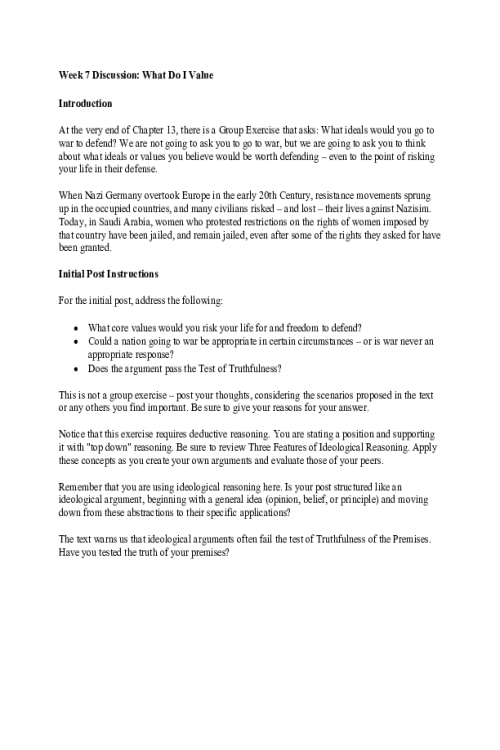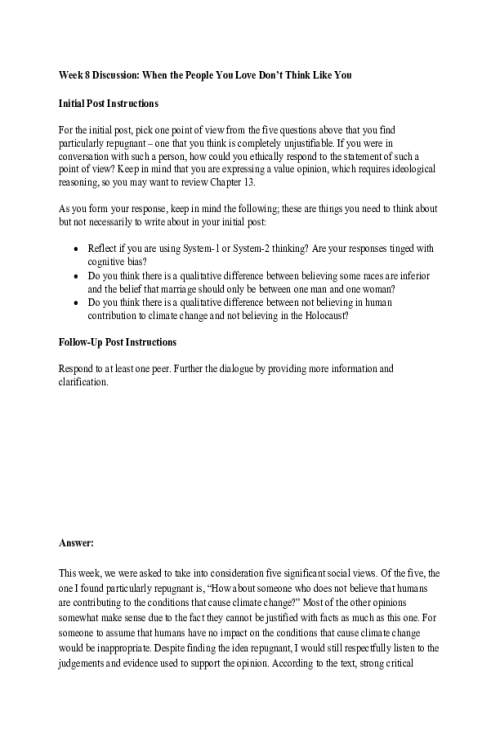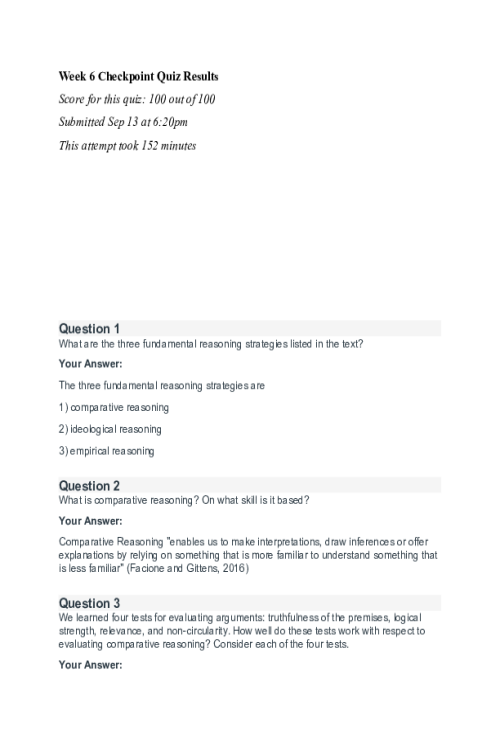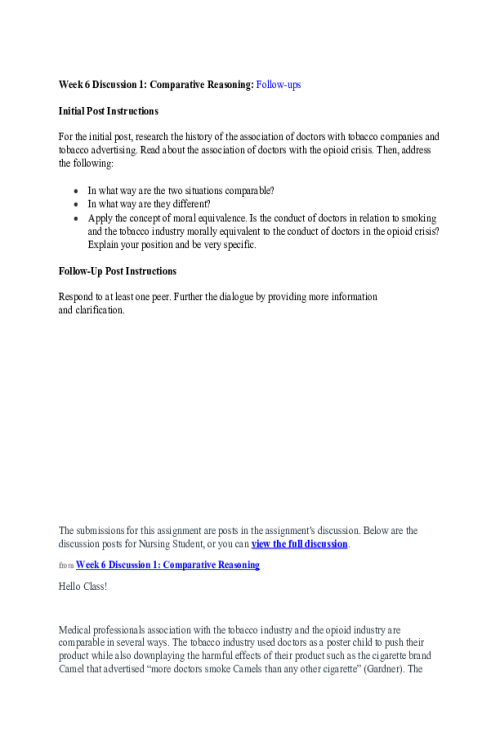PHIL 347 Week 4 Checkpoint Quiz - Spring Semester
Check Point Quiz week 4 Instructions Required ResourcesRead/review the following resources for this activity: Textbook: Chapter 8, 9 Lesson InstructionsThe checkpoint quizzes are short assessments that will check your understanding of the terms and concepts from the reading. Score for this quiz: 50 out of 50 Based on what you have read in the text, the lecture, and any other sources you find helpful to your understanding of deductive arguments, explain the structure of a deductive argument in your own words. A deductive argument is a sound argument that shows a logical relationship between two premises that lead to or infer a conclusion. Deductive reason allows for certainty as long as certain rules are followed. Beginning with a statement we believe to be true or false. This is called the premise. Followed by reasoning in a logical manner to arrive at a conclusion. Go to the box “Deductive Reasoning” (in the beginning of Chapter 8). Read the last paragraph there. Based on that reading and any other sources you find helpful to your understanding, describe the part that “rules, operating conditions, core beliefs, values, policies, principles, procedures, and terminology” (p. 159) play in deductive arguments. These are things that set the foundation, guideline, or structure of our evaluative reasoning skill. Which allow us to determine the credibility and validity of claims made and sources of information. We also use these skills to determine strength or weaknesses of an argument. They help identify the elements of a situation and determine how those parts interact. In the introduction to Chapter 8, the text sets forth a specific definition of the term “valid” as it applies to deductive arguments. What is that definition? Your Answer: Valid- Describes an argument or inference such that the truth of the premise entails or implies that conclusion must be true; In other words, It impossible for the conclusion to be false if all of the premises are true. Use th
Related Products
Related Products
PHIL 347 Week 2 Discussion Option 1 including Replies; Context, Meaning, and Value - California Washington Mural
Contributor: Mike Perry
$10
PHIL 347 Week 2 Discussion Option 1; Context, Meaning, and Value - California Washington Mural
Contributor: Mike Perry
$10
PHIL 347 Week 2 Discussion Option 2; Context, Meaning, and Value - Indiana University Thomas Hart Benton Mural
Contributor: Mike Perry
$10
PHIL 347 Week 1 Assignment; Journal; Critical Thinking - Spring Semester
Contributor: Mike Perry
$15
PHIL 347 Week 4 Discussion including Responses; Distinguishing Inductive and Deductive Reasoning
Contributor: Mike Perry
$10
PHIL 347 Week 4 Discussion; Distinguishing Inductive and Deductive Reasoning
Contributor: Mike Perry
$10
PHIL 347 Week 5 Course Project; Annotated Bibliography and Source Evaluation
Contributor: Mike Perry
$15
PHIL 347 Week 4 Assignment; Journal; Inference, Fallacies, Civic Responsibility
Contributor: Mike Perry
$15
PHIL 347 Week 8 Discussion including Responses; When the People You Love Dont Think Like You
Contributor: Mike Perry
$15

